Abstract
In an attempt to explain the recent resurgence of homosexually-acquired gonorrhoea in the Lothian region of Scotland the number of infections and pattern of infection (urethral, rectal and pharyngeal) of all gonococcal isolates from homosexual men attending the Department of Genitourinary Medicine at Edinburgh Royal Infirmary between 1985 and 1990 were analysed. Serovar typing data were available from infections acquired between January 1986 and December 1990. A correlation between one serovar, Bacejk/Brpyust, and the overall pattern of gonorrhoea was observed. The number of infections caused by minor serovars also correlated with rates of gonococcal infection. The number of minor serovars isolated, which may represent strains from other geographical locations, is related to the total incidence of gonorrhoea. It is possible that the incidence of Bacejk/Brpyust may be determined by the size of the infected pool of gonorrhoea. The most likely explanation for the recent increase in gonorrhoea is a change in sexual behaviour and/or an influx of strains from other geographical areas.
Full text
PDF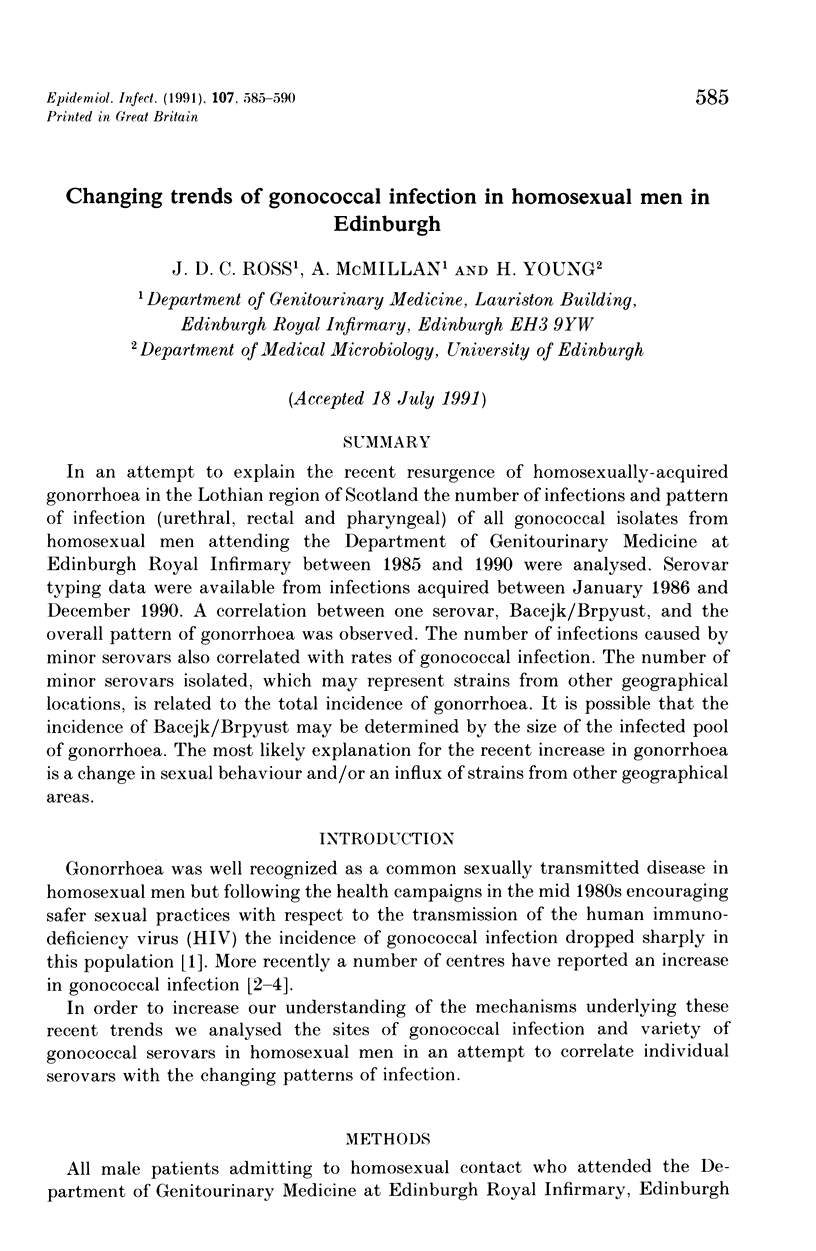
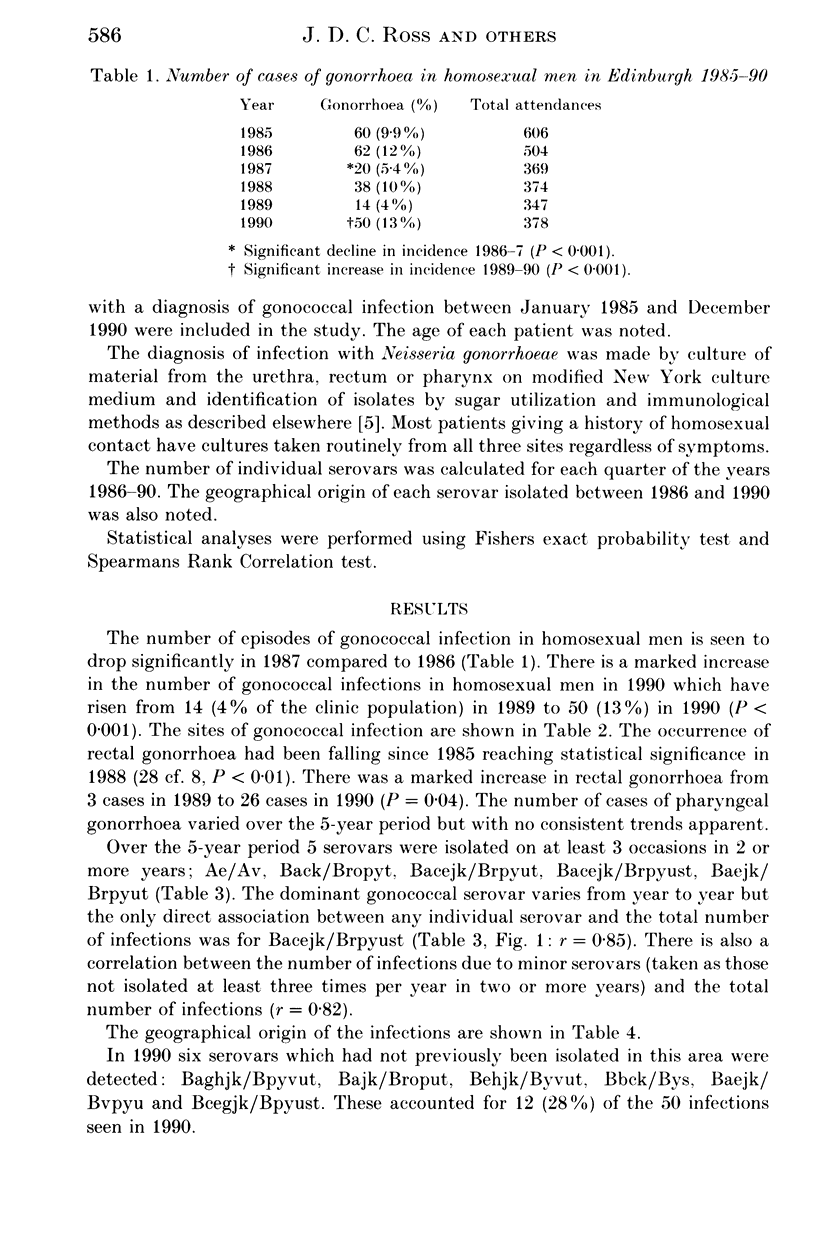
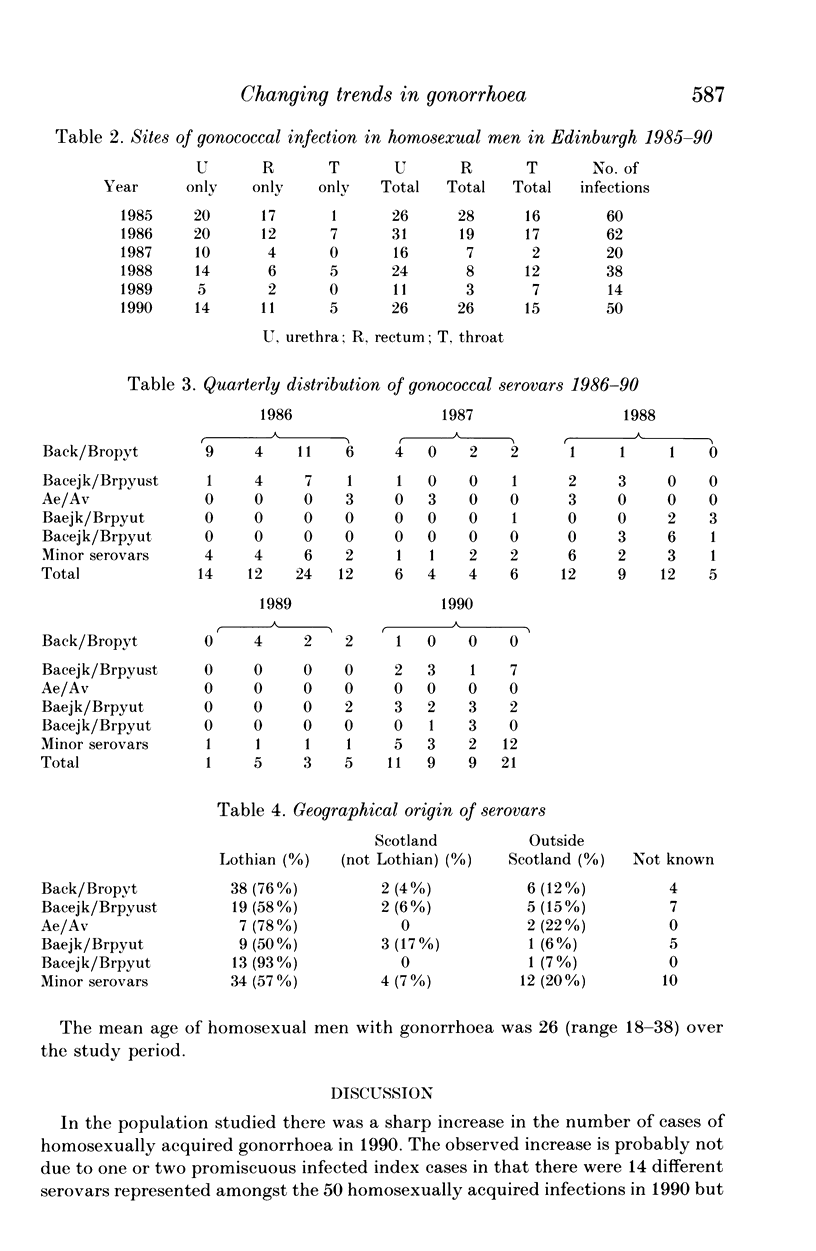
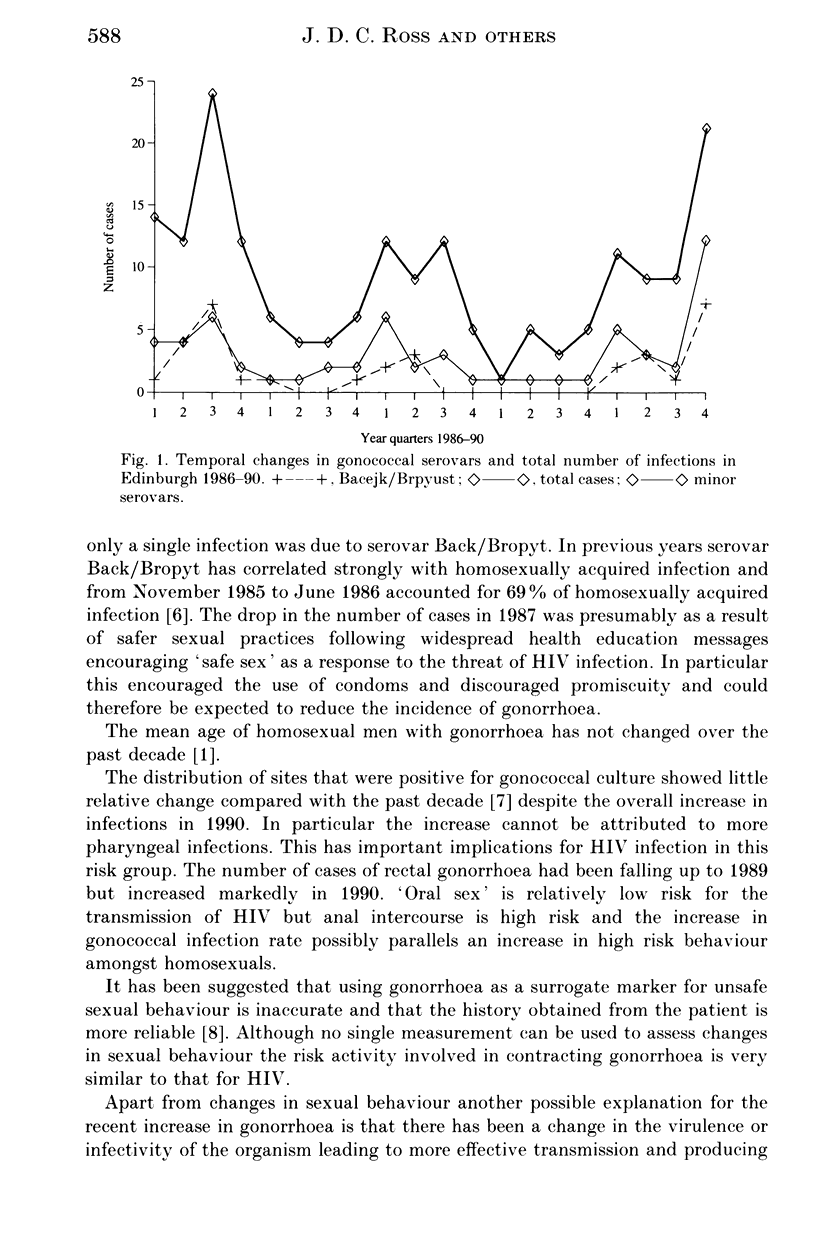
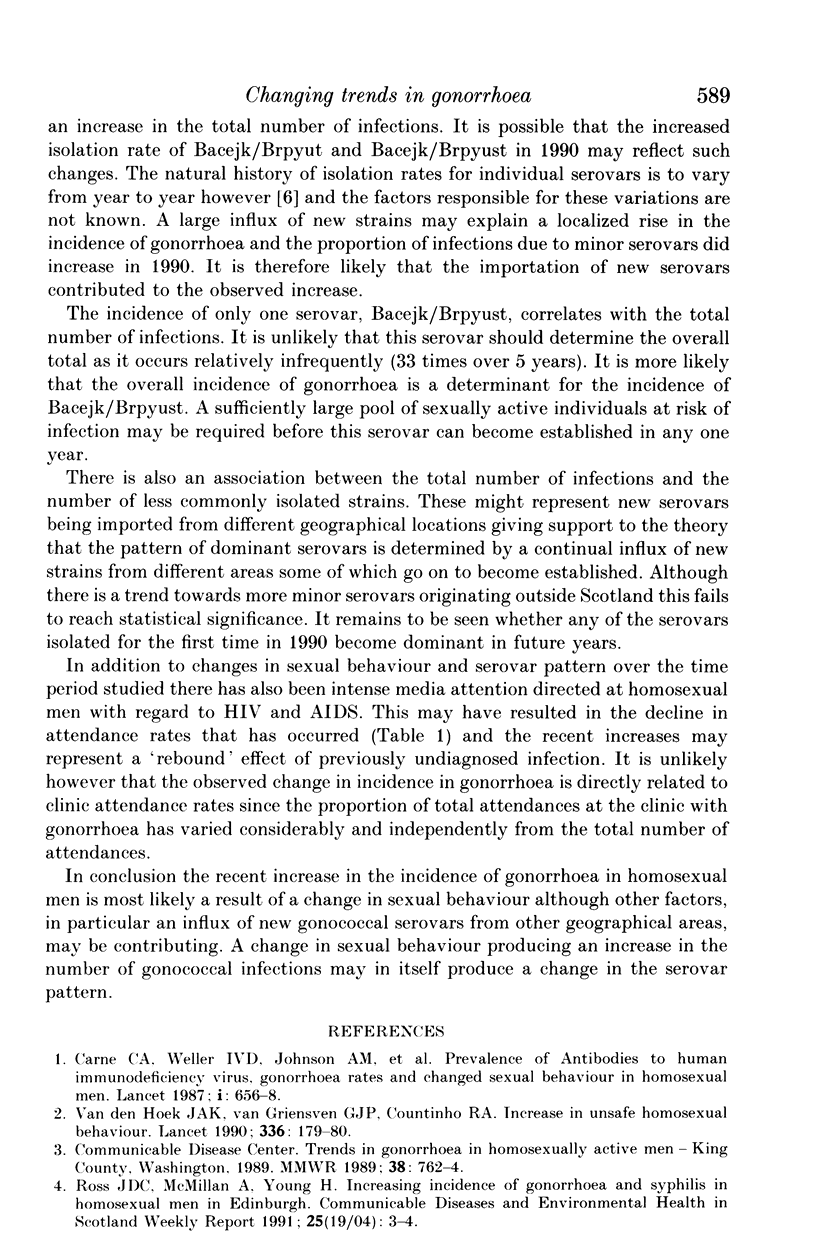
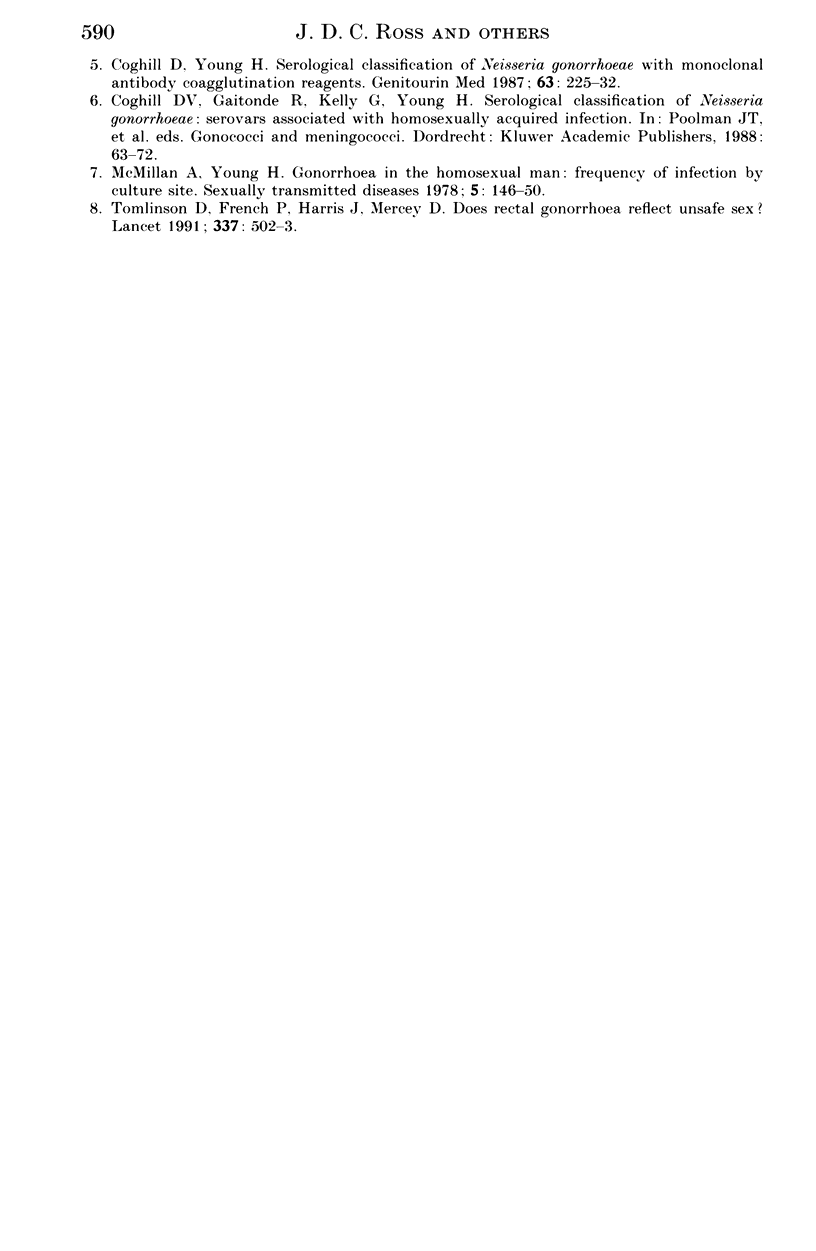
Selected References
These references are in PubMed. This may not be the complete list of references from this article.
- Carne C. A., Weller I. V., Johnson A. M., Loveday C., Pearce F., Hawkins A., Smith A., Williams P., Tedder R. S., Adler M. W. Prevalence of antibodies to human immunodeficiency virus, gonorrhoea rates, and changed sexual behaviour in homosexual men in London. Lancet. 1987 Mar 21;1(8534):656–658. doi: 10.1016/s0140-6736(87)90415-6. [DOI] [PubMed] [Google Scholar]
- Centers for Disease Control (CDC) Trends in gonorrhea in homosexually active men--King County, Washington, 1989. MMWR Morb Mortal Wkly Rep. 1989 Nov 10;38(44):762–764. [PubMed] [Google Scholar]
- Coghill D. V., Young H. Serological classification of Neisseria gonorrhoeae with monoclonal antibody coagglutination reagents. Genitourin Med. 1987 Aug;63(4):225–232. doi: 10.1136/sti.63.4.225. [DOI] [PMC free article] [PubMed] [Google Scholar]
- McMillan A., Young H. Gonorrhea in the homosexual man: frequency of infection by culture site. Sex Transm Dis. 1978 Oct-Dec;5(4):146–150. doi: 10.1097/00007435-197810000-00005. [DOI] [PubMed] [Google Scholar]
- Tomlinson D. R., French P. D., Harris J. R., Mercey D. E. Does rectal gonorrhoea reflect unsafe sex? Lancet. 1991 Feb 23;337(8739):501–502. doi: 10.1016/0140-6736(91)93447-h. [DOI] [PubMed] [Google Scholar]
- van den Hoek J. A., van Griensven G. J., Coutinho R. A. Increase in unsafe homosexual behaviour. Lancet. 1990 Jul 21;336(8708):179–180. doi: 10.1016/0140-6736(90)91700-k. [DOI] [PubMed] [Google Scholar]



